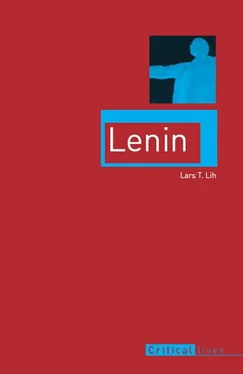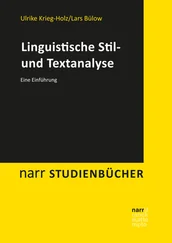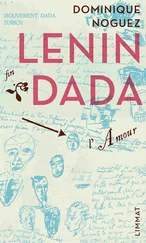32 Georgy Solomon, Sredi krasnykh vozhdei (Moscow, 1995), p. 453.
33 Ibid., pp. 467–8. The fictional character Oblomov famously never managed to get out of bed for several hundred pages; Maria Tsebrikova (1835–1917) was a radical writer with a special interest in the woman question.
34 Substantial excerpts of this book can be found in Kamenev, Mezhdu , pp. 468–537.
35 Lenin, PSS 48:308; CW 35:147 (letter of July 1914).
36 Lenin, PSS 6:133; Lars T. Lih, Lenin Rediscovered: ‘What Is to Be Done?’ in Context (Haymarket, 2008), p. 794.
37 Lenin, PSS 48:323; CW 43:423 (letter of July 1914).
38 Lenin, PSS 20:387–8; CW 17:305 (December 1911).
39 Lenin, PSS 23:296–305; CW 19:218–27.
40 V. I. Lenin: Neizvestnye dokumenty, 1891–1922 (Moscow, 1999 ), p. 158 (letter of 12 July 1914).
1 V. I. Lenin, Polnoe sobranie sochinenii , 5th edn (Moscow, 1958–65), vol. 48, p. 330, Collected Works (Moscow, 1960–68), vol. 35, p. 154 (letter of 28 July 1914).
2 Vladimir Ilich Lenin: Biograficheskaia Khronika (Moscow, 1970–82), 12 vols, 3:267–8.
3 Lenin, PSS 26:354; CW 21:342 (August 1915).
4 Lenin, PSS 26:17–19; CW 21:29–30.
5 Lenin, PSS 27:76–81; CW 21:416–20.
6 For texts and background of the various anti-war resolutions of the Second International, see John Riddell, ed., Lenin’s Struggle for a Revolutionary International: Documents: 1907–1916, The Preparatory Years (New York, 1984).
7 Lenin, PSS 27:102; CW 21:441 (January 1916).
8 Lenin, PSS 49:43–4; Olga Hess Gankin and H. H. Fisher, The Bolsheviks and the World War: The Origin of the Third International (Stanford, CA, 1940), p. 202 (letter to Kollontai, end of December 1914).
9 Gankin and Fisher, Bolsheviks and the World War , p. 460 (speech of 3 June 1916).
10 Lenin, PSS 49:20, 24; CW 35:167, 171 (letters to Alexander Shliapnikov from October 1914).
11 ‘Dead Chauvinism and Living Socialism’ (December 1914), in Lenin, PSS 26:98–105; CW 21:94–101.
12 Karl Kautsky, Road to Power , trans. Raymond Meyer (Atlantic Highlands, NJ, 1996), pp. 88–91.
13 Lenin, PSS 49:82 (letter to Radek from June 1915); the pungent translation comes from R. Craig Nation, War on War: Lenin, the Zimmerwald Left, and the Origins of Communist Internationalism (Durham, NC, 1989), p. 78.
14 Lenin, PSS 49:82 (letter to Radek from June 1915).
15 Krupskaya, Reminiscences of Lenin (New York, 1960), p. 327.
16 Zinoviev, Sochineniia (Moscow, 1923–4), vol. 15, p. 39.
17 Lenin, PSS 27:48–51; CW 21:401–4.
18 In a lecture to Swiss workers given on 22 January 1917 Lenin insisted that ‘we must not be deceived by the present grave-like stillness in Europe. Europe is pregnant with revolution’. He then went on to say ‘We of the older generation may not live to see the decisive battles of this coming revolution.’ This last statement is the basis for claims about Lenin’s pessimism at this time. But Lenin is talking about socialist revolution in Europe as a whole, and his prediction is completely accurate: he did not live to see its decisive battles. Lenin, PSS 30:327–8, CW 23: 253.
19 Lenin, PSS 30:280; CW 23:211–2.
20 Lenin, PSS 49:390; CW 35:288.
21 N. Lénine and G. Zinoviev, Contre le Courant , vol. 2, trans. V. Serge and Parijanine, n.d. (facsimile edition by Francis Maspero [Paris, 1970]), p. 112 (dated 31 January 1917).
22 For the theses of October 1915 see Lenin, PSS 27:48–51; CW 21:401–4; for the theses of April 1917, see PSS 31:113–18, CW 24:21–6.
23 Lenin, PSS 49:421; CW 35:310 (letter to J. S. Hanecki, 30 March 1917).
24 Lenin, PSS 31:55–7. Just before introducing the new goal of ‘steps toward socialism’, Lenin had read an article by Karl Kautsky on the prospects of the 1917 Russian revolution, and this article may have played the role of a catalyst in his thinking.
25 Lenin, CW 25:366; PSS 34:200 (14 September 1917).
26 Lenin, PSS 30:278–9; CW 23:210. The hope that wartime measures represented ‘an instalment – a very large instalment – of Socialism’ was a common one, as attested by these words of William Walling from 1915 in his The Socialists and the War (New York, 1972) (reprint of the 1915 edition), p. 500.
27 For Threatening Catastrophe , see Lenin, PSS 34:151–99; CW 25:319–65. For Can the Bolsheviks Retain State Power? [ vlast ], see PSS 34:287–339; CW 26:87–136.
28 Lenin, PSS 34:159; CW 25:327.
29 Lenin, PSS 34:315; CW 26:113.
30 Stalin, Works (Moscow, 1953), 3:275 (25 August 1917).
31 Lenin PSS 35:2; CW 26:239. (Since the Russian Orthodox church did not accept the calendar reforms of Pope Gregory, the Russian Calendar was 13 days behind the European calendar by 1917. The new Bolshevik government switched to the European calendar in early 1918.)
32 For a detailed survey of the crises of 1918, see Alexander Rabinowitch, The Bolsheviks in Power: The First Year of Soviet Rule in Petrograd (Bloomington, IN, 2007).
33 V. I. Lenin: Neizvestnye dokumenty, 1891–1922 (Moscow, 1999), pp. 246–7, 584–6 (details about the events in Penza are taken mainly from this source).
34 The texts of the relevant telegrams can be found in Lenin, PSS , vol. 50; see particularly items 249, 254, 259, 261, 270. Despite the attention given to the telegram translated in the text, it adds very little to the picture provided by previously published material.
35 A. V. Peshekhonov, Pochemu ia ne emigriroval (Berlin, 1923), pp. 32–3 (the corpses were taken down for Christmas). For a synoptic view of non–Bolshevik terror, see G. A. Bordiugov, Chrezvychainyi vek Rossiisskoi istorii: chetyre fragmenta (St Petersburg, 2004), pp. 45–54. Terror of this sort was carried out not only by the White generals but party governments such as the SR-dominated Komuch in 1918.
36 Lenin, PSS 37:354; CW 28:340.
37 Lenin, PSS 37:305–31; CW 28:294–315.
38 Lenin, PSS 37:331; CW 28:318.
39 John Riddell, ed., Founding the Communist International : Proceedings and Documents of the First Congress: March 1919 (New York, 1987), pp. 32, 302.
40 Arthur Ransome, Russia in 1919 (New York, 1919), pp. 122–3; Krupskaya, Reminiscences , p. 488; Vospominaniia o Vladimire Iliche Lenine (Moscow, 1969), 1:533.
41 Lenin, PSS 38:215; CW 29:224–5 (March 1919).
42 Lenin, PSS 37:169–70; CW 28:165.
5 Beyond the ‘Textbook à la Kautsky’
1 Lenin, ‘Our Revolution’, Polnoe sobranie sochinenii , 5th edn (Moscow, 1958–65), vol. 45, p. 382; Lenin, Collected Works (Moscow, 1960–68), vol. 33, p. 480. A ‘textbook à la Kautsky’ is something quite different from a ‘Kautskyist textbook’. Since Lenin defined ‘Kautskyism’ as renegade behaviour, a ‘Kautskyist textbook’ could never be anything but harmful.
2 All of these phrases and more in the space of five pages (Lenin, PSS 45:378–82). Lenin’s final writings have been conveniently published together with his major statements from 1922 by Pathfinder Press in Lenin’s Final Fight: Speeches and Writings, 1922–23 (New York, 1995). When appropriate, references to the English translation of Lenin’s last writings will be made to this edition, cited as ‘Pathfinder’; for ‘Our Revolution’, see Pathfinder, pp. 219–23.
Читать дальше












